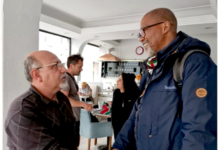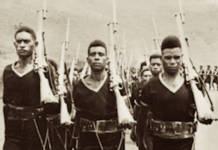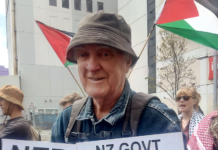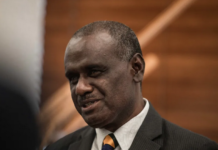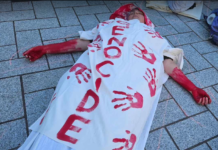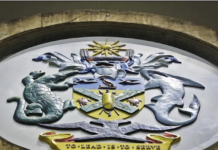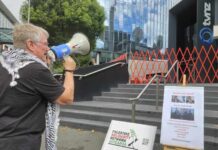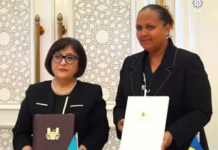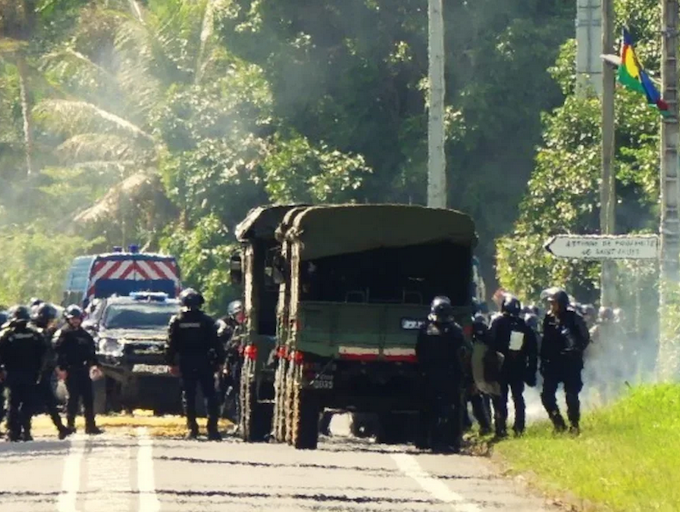
By Patrick Decloitre, RNZ Pacific correspondent French Pacific desk
Fresh clashes in New Caledonia have erupted in the suburbs of Nouméa between security forces and pro-independence protesters who oppose a nickel pact offering French assistance to salvage the industry.
The clashes, involving firearms, teargas and stone-throwing, went on for most of yesterday, blocking access roads to the capital Nouméa, as well as the nearby townships of Saint-Louis and Mont-Dore.
Traffic on the Route Provinciale 1 (RP1) was opened and closed several times, including when a squadron of French gendarmes intervened to secure the area by firing long-range teargas.
The day began with tyres being burnt on the road and then degenerated into violence from some balaclava-clad members of the protest group, who started throwing stones and sometimes using firearms and Molotov cocktails, authorities alleged.
Security forces said one of their motorbike officers, a woman, was assaulted and her vehicle was stolen.
Two of the protesters were reported to have been arrested for throwing stones.
Banners were deployed, some reading “Kanaky not for sale”, others demanding that New Caledonia’s President Louis Mapou (pro-independence) resign.
Northern mining sites also targeted
Other incidents took place in the northern town of La Foa, in the small mining village of Fonwhary, near a nickel extraction site, where Société Le Nickel trucks were not allowed to use the road.
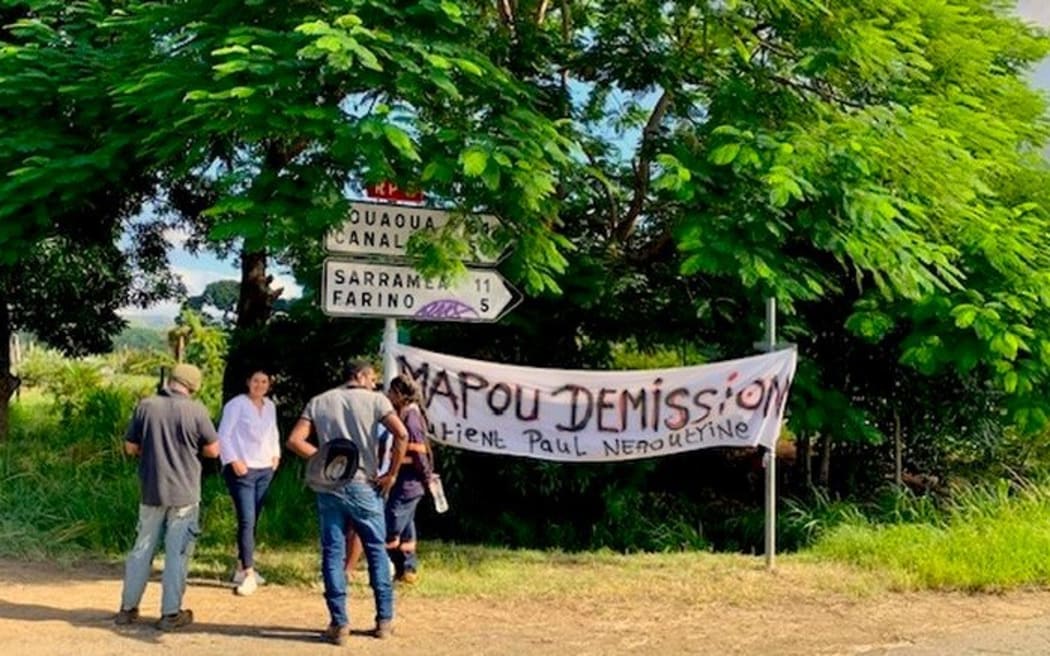
Mont-Dore Mayor Eddy Lecourieux told local Radio Rythme Bleu they had the right to demonstrate, “but they could have done that peacefully”.
“Instead, there’s always someone who starts throwing stones.”
At dusk, the Saint-Louis and Mont-Dore areas were described as under control, but security forces, including armoured vehicles, were kept in place.
“On top of that, there are more marches scheduled for this weekend,” Lecourieux said.
Pro-independence protesters oppose current plans to have a French Constitutional amendment endorsed by France’s two houses of Parliament.
As a first step of this Parliamentary process, last week, the Senate endorsed the text, but with some amendments.
Opposing marches
Pro-France movements also want to march on the same day in support of the amendment.
If endorsed, it would allow French citizens to vote at New Caledonia’s local elections, provided they have been residing there for an uninterrupted 10 years.
Pro-independent parties, however, strongly oppose the project, saying this would be tantamount to making indigenous Kanaks a minority at local polls, and would open the door to a “recolonisation” of New Caledonia through demographics.
A similar high-risk configuration of two marches took place on March 28 in downtown Nouméa, with more than 500 French security forces deployed to keep both groups away from each other.
French authorities are understood to be holding meeting after meeting to fine-tune the security setup ahead of the weekend.
Florent Perrin, the president of Mont-Dore’s “Citizens’ Association”, told media local residents were being “taken hostage” and the unrest “must cease”.
He urged political authorities to “make decisions on all political and economic issues” New Caledonia currently faces.
Perrin called on the local population to remain calm, but invited them to “individually lodge complaints” based on “breach of freedom of circulation”.
“On our side too, tensions are beginning to run high, so we have to remain calm and not respond to those acts of provocation,” he said.
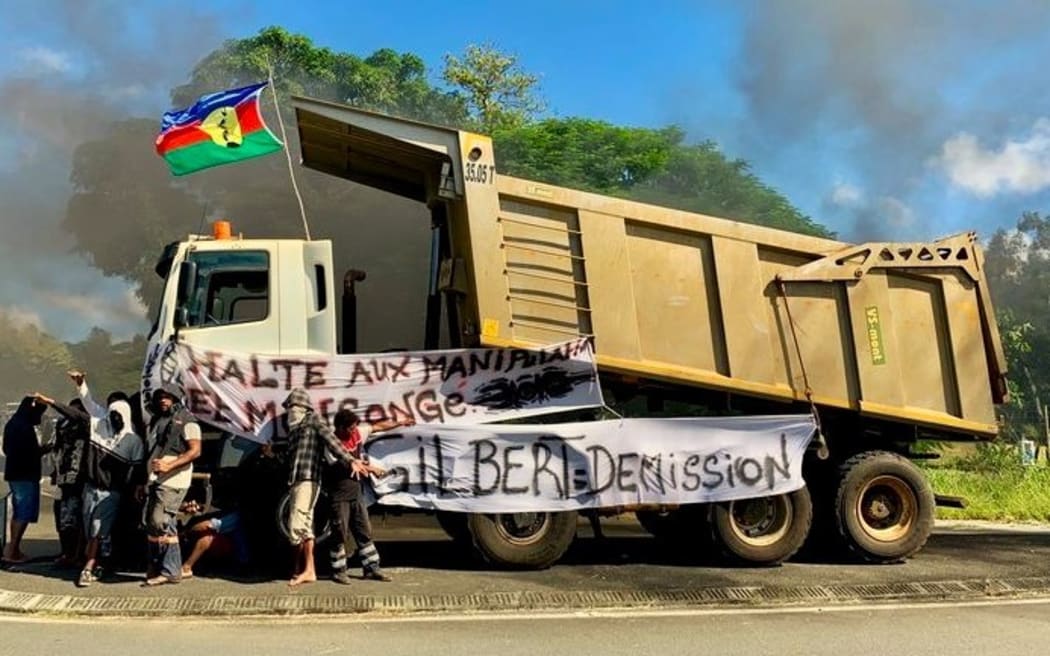
The ‘nickel pact’ issue
The clashes and blockades took place on the same day the local Congress was discussing whether it should give the green light to New Caledonia’s President Louis Mapou to sign the “nickel pact”, worth around 200 million euros (NZ$358 million) in French emergency aid.
In return, France is asking that New Caledonia’s whole nickel industry should undergo a far-reaching slate of reforms in order to make nickel less expensive and therefore more attractive on the world market.
The pact aims to salvage New Caledonia’s embattled nickel industry and its three factories — one in the north of the main island, Koniambo (KNS), and two in the south, Société le Nickel (SLN), a subsidiary of French giant Eramet, and Prony Resources.
KNS’ nickel-processing operations were put in “sleep”, non-productive mode in February after its major financier, Anglo-Swiss Glencore, said it could no longer sustain losses totalling 14 billion euros (NZ$25 billion) over the past 10 years, and that it was now seeking an entity to buy its 49 percent shares.
The other two companies, SLN and Prony, are also facing huge debts and a severe risk of bankruptcy due to the new nickel conditions on the world market, now dominated by new players such as Indonesia, which produces a much cheaper and abundant metal.
New ultimatum from Northern Province
On Tuesday, Northern province President Paul Néaoutyine added further pressure by threatening to suspend all permits for mining activities in his province’s nine sites, where southern nickel companies are also extracting.
In a release, Néaoutyine made references to payment guarantees deadlines on April 10 that had not been honoured by SLN.
It is understood SLN’s owner, Eramet, was scheduled to meet in a general meeting in Paris later on Tuesday.
The French pact — France is also a stakeholder in Eramet — would also help SLN provide longer-term guarantees.
Southern province President and Les Loyalists (pro-France) party leader Sonia Backès alleged on Tuesday that Néaoutyine wants to do everything he can to shut down SLN and block the nickel pact
“Now things are very clear — before it was all undercover; now it’s out in the open,” she said.
“Now we will do everything to maintain SLN, because this means 3000 jobs at stake.”
Congress dragging its feet
Yesterday, New Caledonia’s Congress was holding a meeting behind closed doors to again discuss the French pact.
The Congress decided to postpone its decision and, instead, suggested setting up a “special committee” to further examine the pact and the condition it is tied to, and more generally, “the nickel industry’s current challenges”.
Opponents to the agreement mainly argue that it would pose a risk of “loss of sovereignty” for New Caledonia on its precious metal resource.
They also consider the nickel industry stake-holding companies are not committing enough and that, instead, New Caledonia’s government is asked to raise up to US$80 million (NZ$132 million), mainly by way of new taxes imposed on taxpayers.
Last week, a group of Congressmen, mostly from pro-independence Union Calédonienne, one of the four components of the pro-independence FLNKS, with the backing of one pro-France party, Avenir Ensemble, had a motion adopted to postpone one more time the signing of the pact.
President Mapou defies pro-independence MPs
President Louis Mapou, himself from the pro-independence side, urged the supporters of the motion to “let [him] sign” last week during a Congress public sitting.
“Let’s do it . . . Authorise us to go at it . . . What are you afraid of?” he said.
“Are we afraid of our militants?”
Mapou said if there was no swift Congress response and support to sign the pact, for which he himself had asked the Congress for endorsement, he would “take [his] responsibility” and go ahead anyway.
“I will honour the commitment I made to the French State.”
He said if they wanted to to sanction him with a motion of no confidence to go ahead. He was not afraid of this.
Mapou also told the pro-independence side in Congress that he believed they khad ept postponing any Congress decision “because you want to engage in negotiations as part of [New Caledonia’s] political agreements”.
Last week, Backès, who expressed open support for Mapou’s “courage”, told Radio Rythme Bleu she and Mapou had both received death threats.
This article is republished under a community partnership agreement with RNZ.


